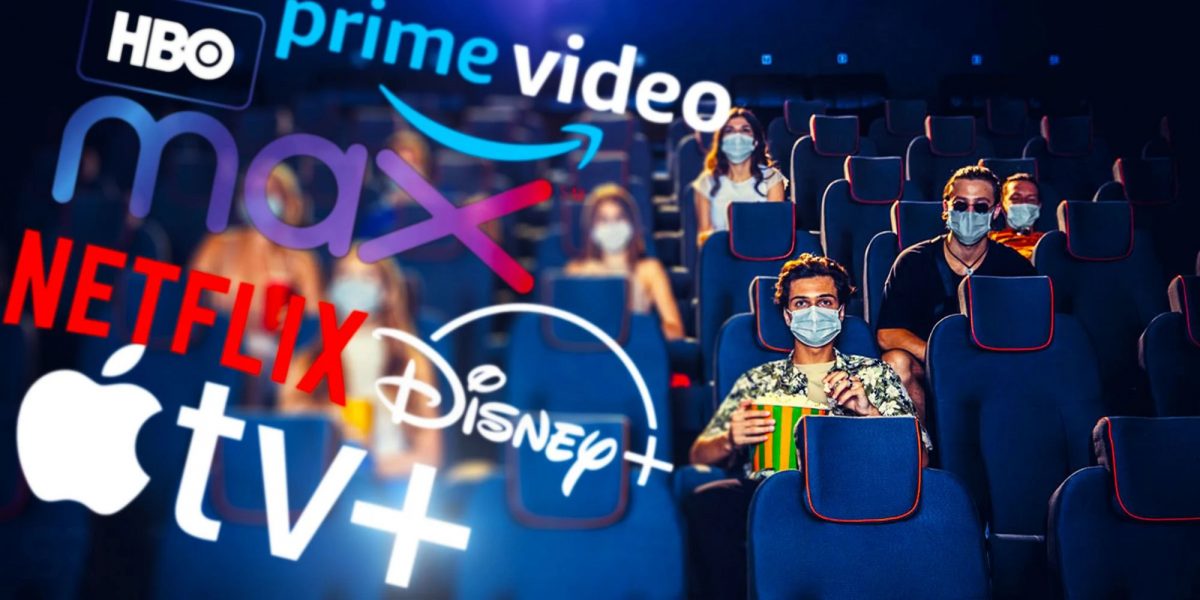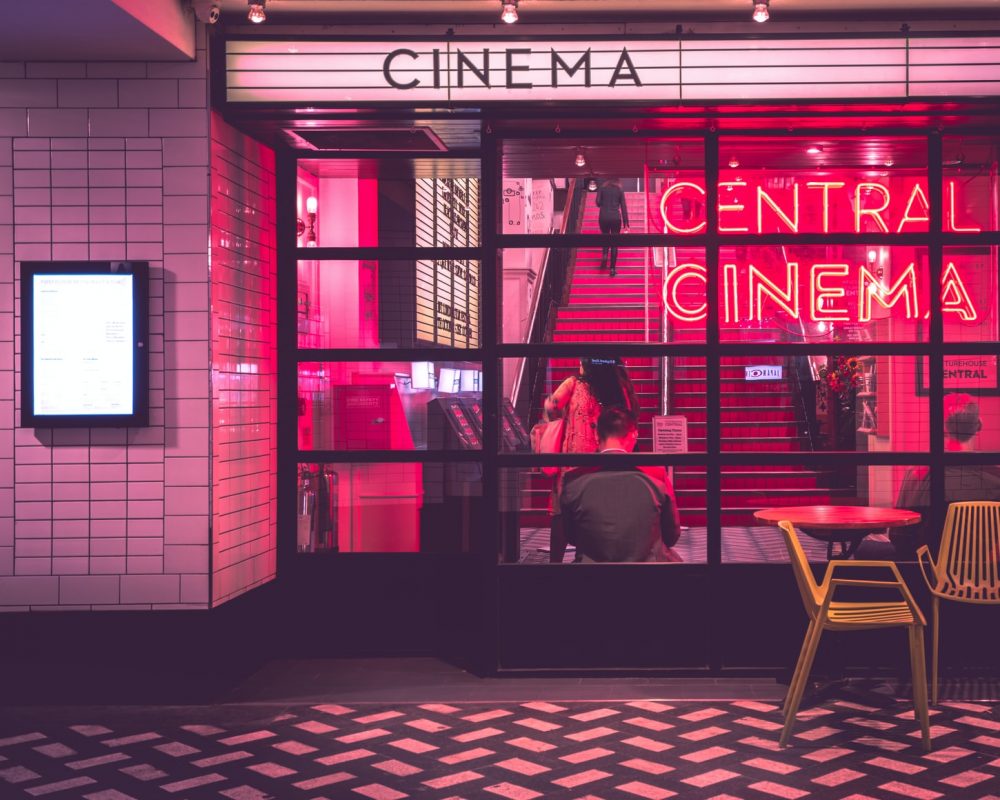Look, this isn’t a Generation X rant … Okay, maybe a little. And it’s not another yawn-inducing ‘is cinema dying’ diatribe where I splutter terms like ‘theatrical experience’ with barely concealed rage, blaming anything from kids on their phones to COVID.

Story re-run with the permission of Drew @ filmism.net.
When I pose the question ‘is cinema dying?’, it’s not what you think. unlike many others, I’m not suggesting we’re not going to have movies in five or 10 or 20 years. Bear with me…
Those of us who grew up in the Western World’s media age during the last half of the 20th century (ie the vast majority of our rapidly aging population) thought economic artefacts like magazines and newspapers would be around forever.
We were surprised and horrified at their sudden decline during the 2010s and current state of induced coma, but look at it this way.
Although newspapers have been around much longer, consumer magazines as media commodities had a productive and profitable 50-year run. That’s about as much as we can expect from most educated human beings in the industrialised world.
Movies have had an even more charmed innings. Over the next few years, the studio idents before the movie starts will all be celebrating their 100th anniversaries.
And like I said, I’m not suggesting movies are going to disappear over the next few years. In fact if the Netflix era has taught us anything, there’s going to be more movie and TV content than ever.
What I believe is going to be missing, and my contention in alluding to the age of cinema being ‘over’, is the influence movies have always enjoyed over pop culture.
It was precipitated from a comment made during a podcast. Writer/director Mick Garris was interviewing director Frank Darabont, and the question was something about how much harder it is to make something that really connects with an audience nowadays.
Darabont was talking about how he’s effectively retired because of how disillusioned the endless development hell affecting most of his work has made him.
First of all, the fact the industry is so difficult to navigate that an artist of his standing (The Shawshank Redemption, The Walking Dead) still can’t get projects off the ground easily is scary enough. But Darabont said something that hit me on a very primal level. His words were ‘movies don’t matter anymore’.
Compromising Artistic Quality

Here’s the thing. I’m 50. During my formative years cinema was prestige media. Maybe the movies back then were just better. I hesitate strongly to believe that, because therein lies the trap Douglas Adams warned us about when he came up with his set of rules that describe our reaction to new things:
1. Anything that is in the world when you’re born is normal and ordinary and is just a natural part of the way the world works.
2. Anything that’s invented between when you’re fifteen and thirty-five is new and exciting and revolutionary and you can probably get a career in it.
3. Anything invented after you’re thirty-five is against the natural order of things.
Adams was talking specifically about technology, but his words apply just as much to other areas like media or culture.
It’s no mystery there’s something psychological about our childhood and teenage years that cements whatever media we enjoy as ‘real’ music, movies or TV. Everything that came before is fusty and square, anything that comes later is nonsensical and devoid of artistic quality.
We all know the feeling of sounding exactly like our parents when we watch whatever tween is twerking in booty shorts in the music charts (do they even have music charts anymore?) and find ourselves bemused or unimpressed.
But I think myself and my peers were primed to love movies in some measure because of their prestige. In those days, famous people were singers or movie stars who actually bought talent to bear in an artistic field rather than celebrity sex tape participants or YouTubers (there I go already).
Studio PR and marketing departments in those days did their jobs well and the channels used to sell the desire to see a movie to kids like me were very well-established and very effective.
Or maybe Gen Xers loved movies simply because of economic scarcity. In a previous Filmism.net Dispatch I talked about how we have a different moviemaking stance when we sit at home and cue up a streaming service versus go to a cinema.
Maybe the effort and expense my friends and I had to go to of putting on proper clothes, getting on trains or bikes, negotiating rides from parents, being at the movie theatre at the right time and handing over money made the media we were about to consume something special, something to be absorbed and appreciated properly.
But whatever the economic or psychologically developmental method, the outstanding commercial fare of the 70s and 80s like Ghostbusters, Beverly Hills Cop, The Goonies, Raiders of the Lost Ark, Gremlins, Star Wars and Back to the Future (along with TV shows like The Incredible Hulk, The Fall Guy, Automan, Battlestar Galactica and a hundred others) are intrinsic parts of my generation to this day, a large part of the people we are defined by our relationship to pop culture.
Today my daughter is 29 and my grandson is 10. She certainly likes movies and has watched as many as you’d expect of anyone her age (probably more than me, owing to the explosion of ways you can watch them whenever you like), but as far as I’m aware she ‘just’ likes movies.
The movies that came out when she was the age I was for the likes of “Star Wars” and “Back to the Future” (“Pirates of the Caribbean: Dead Man’s Chest”, “Cars”, “The Da Vinci Code”, “Happy Feet” and “The Devil Wears Prada”) contain some good ones, but will she ever think they partly define the person she is?
Is anyone her age going to be watching them again in 20, 30 or 40 years? If they do, are they going to be doing so with an enduring love for them?
Are they going to endlessly reinterpret them in essays, remember them in oral histories with the casts and crews? Is some Broadway producer going to make a cheesy musical based on them?
It’s something I see even less in my grandson. Admittedly he’s only just entering the age group when the abiding love for the fixtures of pop culture is established in the subconscious, but his entertainment world couldn’t be more different from mine.
He’s in a time where movies not only aren’t very prestigious anymore but where there’s no scarcity, too many other entertainment options and (slight these-kids-these-days grumble) he doesn’t seem to have the ability or practice to sit still with eyes front and absorb anything more complex than a two-minute Muckbang.
Even then, we’ve hardly been to cinemas for two years, and when you’re eight or 10 that’s an eternity. He probably doesn’t even remember what going to a movie really feels like.
Do Movies Even Matter?

There’ll be tons of content around in years to come, but will movies still matter? Maybe we’re already at the stage where they don’t, and the idea of movies mattering (like the wireless crystal set for my grandparents’ generation) will simply die out with us over the next 30-40 years. Sad, or progress?
On screens recently, I quite enjoyed another Scandinavian effort to make a throwback Hollywood disaster movie in The Burning Sea.
Kudos however has to go to whoever at DC gave the Batman franchise to Matt Reeves. Where Marvel seems to machine-tool every film to be good but all look and feel the same, DC at least gives moviemakers with vision the reigns.
It fails more than it works (like it did in the Zack Snyderverse), but because they let directors really swing for it, it’s beautiful when they connect, and Matt Reeves has done so with The Batman.
Till next time,
Drew @ Filmism.net
Subscribe to FIB’s Weekly Breaking News Report for your weekly dose of music, fashion and pop culture news!







